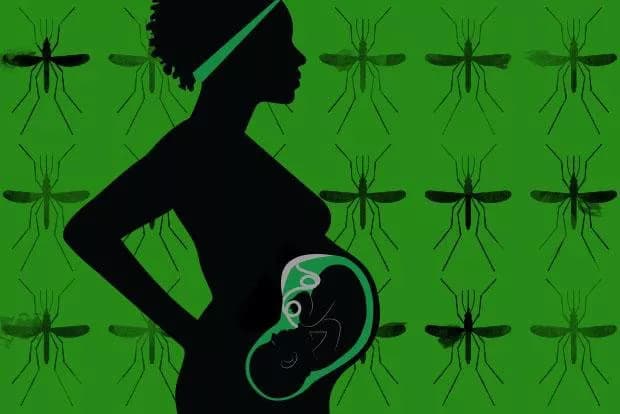
When Malaria Infects The Placenta During Pregnancy, Baby's Future Immunity Can Be Affected
Mothers infected with malaria during pregnancy can pass more of their own cells to their baby and change the infant's risk of later infection, a new study shows.
The study, from researchers at Fred Hutchinson Cancer Research Center and their colleagues, suggests that a mother's cells could directly act as part of her child's immune system, even after birth.
The placenta blocks some infectious agents, but easily passes oxygen and nutrients to the baby. It also allows a unique exchange of cells between mother and child, known as "microchimerism." The research team looked at how malaria can alter the mother-child cell sharing that happens during pregnancy. It was led by Dr. Whitney Harrington, University of Washington and Seattle Children's Hospital pediatric infectious disease specialist, and Fred Hutch microchimerism researcher Dr. J. Lee Nelson.
Most babies carry a very small number of foreign cells acquired from their mothers, on the order of a few maternal cells in every 100,000, but the researchers found that babies born to Tanzanian mothers infected with malaria during pregnancy and whose infections had traveled to their placentas had evidence for far more maternal cells on board at the time of their births -- on average about one percent, with a few cases even higher than 10 percent.
The level of increase of mother's cells present in baby's blood was a surprise to the researchers. Harrington hypothesizes that the infection led to alterations in placental proteins that control cell trafficking, which allowed more maternal cells to enter the fetuses.
Even more surprising was the lasting effect of this change. When the researchers looked at the health records of the babies, they found that those with higher levels of maternal microchimerism were twice as likely to be infected with malaria during childhood -- but only half as likely to get sick from that infection, suggesting that the cells transferred from the mothers might confer some protection against the disease.
Harrington said there are two possible explanations for what's going on: Either mom's immune cells are directly recognizing and acting on the malaria parasite in her child's body, or they're acting indirectly by teaching the child's immune system how to recognize and react to the pathogen.
The researchers examined 53 umbilical cord blood samples from pregnant women and their babies enrolled in a previous study in Muheza, Tanzania, from 2002 to 2006. About half of the women had placental malaria, and about half of those infected women had what's called inflammatory placental malaria, in which the placenta gets very diseased and can stop functioning properly.
In their study, the researchers looked for the amount of maternal DNA in the babies' umbilical cord blood. This is representative of the level of maternal microchimerism the children had at the moment they were born, Harrington said, although it's not known how long that level may persist after birth. Women with placental malaria gave birth to babies with higher-than-average maternal microchimerism, and babies born to mothers with inflammatory placental malaria had even higher average levels.
In future studies, the researchers plan to explore how the maternal and infant cells interact to affect future malaria risk, whether and for how long the high levels of maternal cells persist during children's lives, and how in general a person's microchimerism status affects their susceptibility to other childhood infections.
Malaria is a leading cause of death in low- and middle-income countries, especially among children. An estimated 429,000 people die every year of the infection, according to the World Health Organization, and the majority of those deaths occur in sub-Saharan Africa.
Materials provided by Fred Hutchinson Cancer Research Center. Original written by Rachel Tompa. Note: Content may be edited for style and length.
Disclaimer: DoveMed is not responsible for the accuracy of the adapted version of news releases posted to DoveMed by contributing universities and institutions.
Primary Resource:
Harrington, W. E., Kanaan, S. B., Muehlenbachs, A., Morrison, R., Stevenson, P., Fried, M., ... & Nelson, J. L. (2017). Maternal microchimerism predicts increased infection but decreased disease due to P. falciparum during early childhood. The Journal of infectious diseases. DOI: 10.1093/infdis/jix129
Related Articles
Test Your Knowledge
Asked by users
Related Centers
Related Specialties
Related Physicians
Related Procedures
Related Resources
Join DoveHubs
and connect with fellow professionals

0 Comments
Please log in to post a comment.